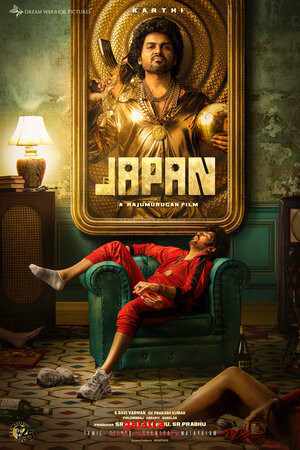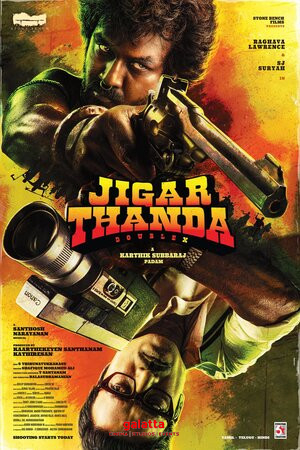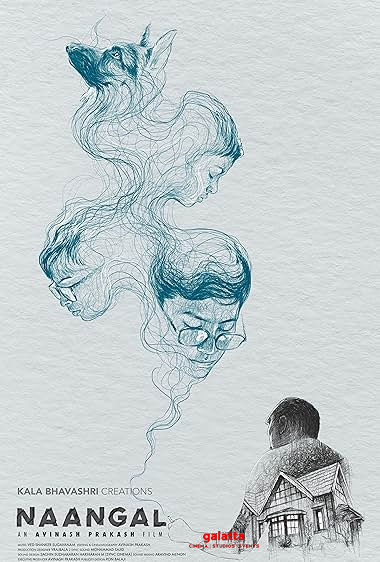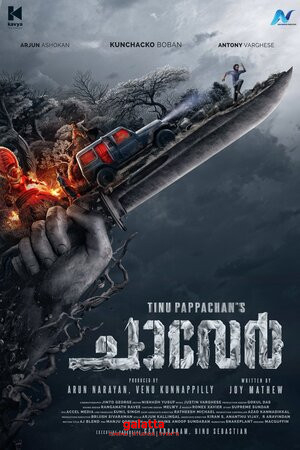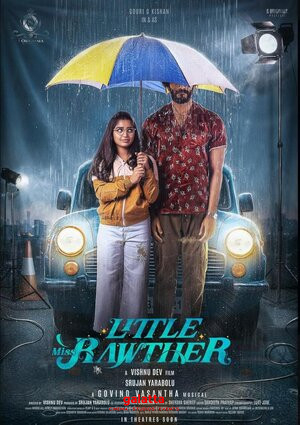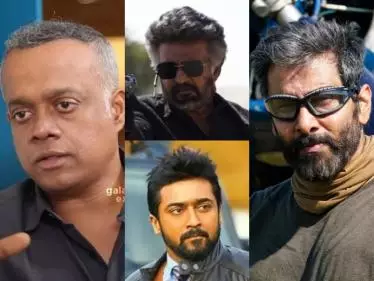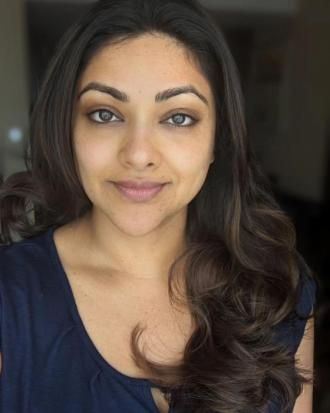Kaathal – The Core Movie Cast & Crew
The first time we see Omana (Jyothika) is in church. Salu K Thomas’s camera sweeps around the room, starting with God and stopping at Omana. It’s perhaps a fitting equation, for she, too, has been bearing a cross for many years. (Many frames in the film carry religious imagery.) The difference is that Omana is not going to sacrifice herself. She is a good Christian, but she is also a modern woman with a mind of her own. She believes in forgiveness and compassion and understanding, but she also will not be a pushover. She will not turn the other cheek. Jeo Baby’s Kaathal - The Core can be seen as a sequel (in spirit) to The Great Indian Kitchen. This, too, is an “issue movie”. Here, too, we have a woman who has been oppressed by a patriarchal, traditional society. Here, too, the husband is the “culprit”, so to speak – the oppressor. Here, too, there is the woman’s desire to break free from the chains that bind her. But this is a much kinder, less angrier movie than Kitchen.
Mammootty plays Omana’s husband, Mathew. He plans to stand for a post in the local by-election. In the film’s sole melodramatic touch, that is the exact point when Omana initiates divorce proceedings. Is the timing a little too pat, a little too dramatic? Yes. But I also think this is about the conflation of the personal and the political. Around this scenario, Jeo Baby – with his excellent writers Adarsh Sukumaran and Paulson Skaria – builds a superb bunch of characters: a driving teacher, Mathew’s father, Mathew’s daughter who is torn between her parents, and a whole set of doors, which are a character on their own. People are framed through doorways, and you could call it an open-door policy. At this juncture, there are no secrets. There is no hiding. And the doors are always open to everyone. Even as Omana prepares to divorce Mathew, she never shuts him out. There is love in her heart. Had the doors of communication been opened earlier, Mathew and Omana might have been in a very different place today.
Jeo Baby handles the film so elegantly, so quietly that it’s hard to single out a “directorial” stretch. But the sequence just before the interval point is a beauty, with all the central characters in different locations, but united by rain… from the heavens. This may be the calmest issue-based movie ever made. If there is a word to describe Kaathal, it’s “dignity”. There’s dignity in all the performances, especially Mammootty’s. He plays a deer caught in the headlights, unsure of how to handle what life has thrown at him. The great actor has a great scene where he talks to his father. It is an emotional moment, and the emotion is deepened by the gentle reveal of an open door nearby – through which we see Omana. Along with Mammootty, a muted, minimalistic Jyothika holds the film together.
There’s another difference between Kaathal and The Great Indian Kitchen. In the latter, the woman fought her battle alone. Here, the woman resorts to legal means – and Kaathal turns into a solid courtroom drama. But even there, voices are rarely raised. The issues are brought up and handled with, yes, dignity. There’s no dirty fighting, and even the “surprise last-minute witness” trope is handled with enormous decency. The groundwork for this trope is laid out in a domestic scene, and that is what weighs down this person’s conscience and drives them to court. Is it all a little too simplistic? Perhaps. But I’d like to use the word “idealistic” The Great Indian Kitchen took place in a world without love. Kaathal, on the other hand, is filled with love. Jeo Baby wants us to understand the issue rather than grapple with it. He is saying: “Wouldn't it be nice if things happened this way, like in a fairy tale?” And he succeeds.
The rest of this review is going to have major spoilers, so proceed with caution.
But this must be said. Had Mammootty and Jyothika – and the other actors – not been so convincing, the film might have fallen apart. The issue, here, is Mathew’s homosexuality. It’s hard to believe a small-ish town being so okay with the idea. It’s hard to believe a political party endorsing Mathew after news about his sexual orientation leaks out. It’s hard to believe that a couple would not discuss or have an argument about the divorce. It's hard to believe there would be no outrage about a gay man getting married in order to hide his sexuality. It’s hard to believe that Omana would – Christian compassion and all – continue to live in the same house with the man who cheated her and destroyed her youth. You understand that Jeo Baby does not wish to point hands at any single person and, rather, wishes to lay out a complex situation for us to take home and think about. But this complex situation needed more complexity.
There’s a beautiful scene where Mathew’s father meets Mathew’s lover. The latter is unable to meet the older man’s eyes. He feels guilty, ashamed. That’s one of the few times we get a sense of what it must be like for a homosexual in a society that’s largely straight – or least, pretends to be straight. One part of me wanted more of these scenes, more internal drama – compared to the external one we are presented with. I would have liked at least one scene where Omana tells us what is in her heart. But what Kaathal loses in complexity, it gains in effect. In a film where scriptures are read every night and a car’s dashboard carries a model of the crucifix, perhaps there is no place for hate. The point, perhaps, is not to believe in these happenings but to accept them, as a believer would accept God’s love.


